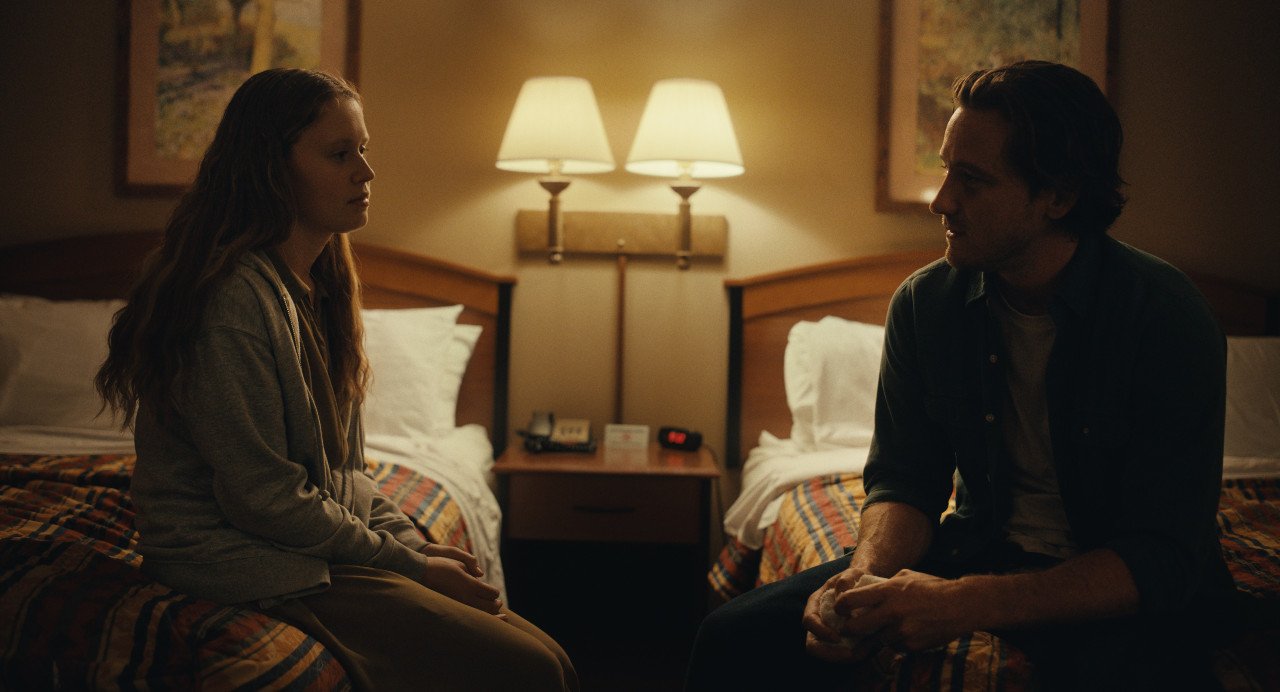The Starling Girl: Strong Performances Elevate Familiar Coming-of Age Drama
By Thom Ernst
Rating: B
The Starling Girl is a gently told tale of repression challenged by desire and instinct.
The Starlings are a respected family in the insular community of their church. Jem (Eliza Scanlen) is the eldest of the Starling offspring. She performs in the church’s dance troupe, something she views as an act of honouring God—to that effect, she prays profusely that any joy she might feel from performing be redirected towards her servitude.
There is no room in the church for vanity and self-praise. All acts are acts of worship. (I’m reminded of the gripping performance Paul Dano gives in director James Marsh’s The King from 2005).
Jem is 17 and ready to being courting which, like all things in this orthodox society, is overseen by the charismatic Pastor Taylor (Kyle Secor). It just so happens the Taylors have sons, and their youngest, an unadventurous young man named Ben (Austin Abrams) has expressed interest in Jem, although director-screenwriter Laurel Parmet leaves room to suggest other interests may be at work.
Jem’s not keen on Ben, whose idea of a clever anecdote is an inappropriate story of a sick farm animal. There is little doubt that Ben is hindered by the large shadow cast by his older brother, the popular youth pastor Owen (Lewis Pullman) whose soothing baritone voice and laidback approach make him popular with the younger congregation—especially with Jem.
But Owen, who has just returned from missionary work in Puerto Rico, is older, in a position of power, and he’s married. Pastor Owen is off-limits. Or should be. But dissatisfaction with his homelife, and the lure of Jem’s devotion and innocence, is too hard for him to resist. Jem does not resist either. And from here the story takes off.
Though Parmet finds fault with the all-consuming, all-invasive religious organization Jem lives in, she doesn’t do a lot of finger pointing, at least not without raising compassion despite how misled the characters may seem.
To my mind, there is a villain here—even if Parmet works hard to avoid one—and it’s Pastor Owen for his seduction of Jem, the young charge of his congregation. The age difference between Owen and Jem is not so spectacularly wide that it couldn’t be bridged, and married folks sometimes fall in love with other people. But it’s Owen’s position of power and his refusal to own the relationship that makes his actions questionable.
Parmet has great control with the film’s various displays of power-plays subtly executed with a smile and a handshake. And through every moment of deceit, every played-out secret, and unbridled display of arrogance and control is done under the guise of the Lord’s doing. Even outright sin.
Other things are going on in Jem’s life: her father (Jimmi Simpson) the most positive figure in her life, is relapsing into alcohol while Jem’s icy-cold mother (Wrenn Schmidt)—who underhandly deploys all decisions in the household, even if she leaves the words to her husband—lives in hostile denial.
There is a heap of deserving praise raining down on Eliza Scanlen for her remarkable performance as Jem Starling (Click Here to watch our Eliza Scanlen interview). But Scanlen’s performance is one of many performances in the film that lift the story to a higher level.
Next to Jem, I found Ben to be a phenomenally interesting character who does not get enough screen time. Abrams performs Ben with slouch indifference, and a complete inability to communicate on any level that could be deemed interesting, much less romantic. But unfortunately, Ben is a secondary character, yet he’s one that goes through the film's biggest transformation.
The Starling Girl is a film that highlights remarkable performances in a story that travels down familiar territory.
The Starling Girl. Directed by Laurel Parmet. Starring Eliza Scanlen, Lewis Pullman, Jimmi Simpson, Wrenn Schmidt, Kyle Secor, and Austin Abrams. In theatres May 19 including Toronto’s Varsity Cinema.



